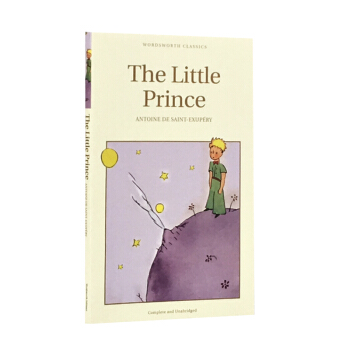![Mansfield Park 曼斯菲爾德莊園 [平裝]](https://pic.tinynews.org/19017048/af7e7161-2071-49f2-b5d9-76fb3e5e1331.jpg)

具体描述
編輯推薦
Founded in 1906 by J.M. Dent, the Everyman Library has always tried to make the best books ever written available to the greatest number of people at the lowest possible price. Unique editorial features that help Everyman Paperback Classics stand out from the crowd include: a leading scholar or literary critic's introduction to the text, a biography of the author, a chronology of her or his life and times, a historical selection of criticism, and a concise plot summary. All books published since 1993 have also been completely restyled: all type has been reset, to offer a clarity and ease of reading unique among editions of the classics; a vibrant, full-color cover design now complements these great texts with beautiful contemporary works of art. But the best feature must be Everyman's uniquely low price. Each Everyman title offers these extensive materials at a price that competes with the most inexpensive editions on the market-but Everyman Paperbacks have durable binding, quality paper, and the highest editorial and scholarly standards.內容簡介
In Mansfield Park, first published in 1814, when the author had reached her full maturity as a novelist, Jane Austen paints some of her most witty and perceptive studies of character. Against a genteel country landscape of formal parks and stately homes, the gossipy Mrs. Norris becomes a masterful comic creation; the fickle young suitor Henry Crawford provides an unequaled portrait of an unscrupulous young man; and the complexly drawn Fanny Price emerges as one of Jane Austen's finest achievements—the poor cousin who comes to stay with her wealthy relatives at Mansfield Park and learns how the game of love can too easily turn to folly. More intricately plotted and wider in scope than Austen's earlier works, Mansfield Park continues to enchant and delight us as a superb example of a great author's craft.作者簡介
Jane Austen was born on December 16, 1775 at Steventon near Basingstoke, the seventh child of the rector of the parish. She lived with her family at Steventon until they moved to Bath when her father retired in 1801. After his death in 1805, she moved around with her mother; in 1809, they settled in Chawton, near Alton, Hampshire. Here she remained, except for a few visits to London, until in May 1817 she moved to Winchester to be near her doctor. There she died on July 18, 1817.As a girl Jane Austen wrote stories, including burlesques of popular romances. Her works were only published after much revision, four novels being published in her lifetime. These are Sense and Sensibility (1811), Pride and Prejudice (1813), Mansfield Park (1814) and Emma (1816). Two other novels, Northanger Abbey and Persuasion, were published posthumously in 1818 with a biographical notice by her brother, Henry Austen, the first formal announcement of her authorship. Persuasion was written in a race against failing health in 1815-16. She also left two earlier compositions, a short epistolary novel, Lady Susan, and an unfinished novel, The Watsons. At the time of her death, she was working on a new novel, Sanditon, a fragmentary draft of which survives.
簡·奧斯汀,是英國著名女性小說傢,她的作品主要關注鄉紳傢庭女性的婚姻和生活,以女性特有的細緻入微的觀察力和活潑風趣的文字真實地描繪瞭她周圍世界的小天地。
精彩書評
"Never did any novelist make more use of an impeccable sense of human values."——Virginia Woolf
精彩書摘
Chapter OneAbout thirty years ago, Miss Maria Ward of Huntingdon, with only seven thousand pounds, had the good luck to captivate Sir Thomas Bertram, of Mansfield Park, in the county of Northampton, and to be thereby raised to the rank of a baronet's lady, with all the comforts and consequences of an handsome house and large income. All Huntingdon exclaimed on the greatness of the match, and her uncle, the lawyer, himself, allowed her to be at least three thousand pounds short of any equitable claim to it. She had two sisters to be benefited by her elevation; and such of their acquaintance as thought Miss Ward and Miss Frances quite as handsome as Miss Maria, did not scruple to predict their marrying with almost equal advantage. But there certainly are not so many men of large fortune in the world, as there are pretty women to deserve them. Miss Ward, at the end of half a dozen years, found herself obliged to be attached to the Rev. Mr. Norris, a friend of her brother-in-law, with scarcely any private fortune, and Miss Frances fared yet worse. Miss Ward's match, indeed, when it came to the point, was not contemptible, Sir Thomas being happily able to give his friend an income in the living of Mansfield, and Mr. and Mrs. Norris began their career of conjugal felicity with very little less than a thousand a year. But Miss Frances married, in the common phrase, to disoblige her family, and by fixing on a Lieutenant of Marines, without education, fortune, or connections, did it very thoroughly. She could hardly have made a more untoward choice. Sir Thomas Bertram had interest, which, from principle as well as pride, from a general wish of doing right, and a desire of seeing all that were connected with him in situations of respectability, he would have been glad to exert for the advantage of Lady Bertram's sister; but her husband's profession was such as no interest could reach; and before he had time to devise any other method of assisting them, an absolute breach between the sisters had taken place. It was the natural result of the conduct of each party, and such as a very imprudent marriage almost always produces. To save herself from useless remonstrance, Mrs. Price never wrote to her family on the subject till actually married. Lady Bertram, who was a woman of very tranquil feelings, and a temper remarkably easy and indolent, would have contented herself with merely giving up her sister, and thinking no more of the matter: but Mrs. Norris had a spirit of activity, which could not be satisfied till she had written a long and angry letter to Fanny, to point out the folly of her conduct, and threaten her with all its possible ill consequences. Mrs. Price in her turn was injured and angry; and an answer which comprehended each sister in its bitterness, and bestowed such very disrespectful reflections on the pride of Sir Thomas, as Mrs. Norris could not possibly keep to herself, put an end to all intercourse between them for a considerable period.
Their homes were so distant, and the circles in which they moved so distinct, as almost to preclude the means of ever hearing of each other's existence during the eleven following years, or at least to make it very wonderful to Sir Thomas, that Mrs. Norris should ever have it in her power to tell them, as she now and then did in an angry voice, that Fanny had got another child. By the end of eleven years, however, Mrs. Price could no longer afford to cherish pride or resentment, or to lose one connection that might possibly assist her. A large and still increasing family, an husband disabled for active service, but not the less equal to company and good liquor, and a very small income to supply their wants, made her eager to regain the friends she had so carelessly sacrificed; and she addressed Lady Bertram in a letter which spoke so much contrition and despondence, such a superfluity of children, and such a want of almost every thing else, as could not but dispose them all to a reconciliation. She was preparing for her ninth lying-in, and after bewailing the circumstance, and imploring their countenance as sponsors to the expected child, she could not conceal how important she felt they might be to the future maintenance of the eight already in being. Her eldest was a boy of ten years old, a fine spirited fellow who longed to be out in the world; but what could she do? Was there any chance of his being hereafter useful to Sir Thomas in the concerns of his West Indian property? No situation would be beneath him-or what did Sir Thomas think of Woolwich? or how could a boy be sent out to the East?
The letter was not unproductive. It re-established peace and kindness. Sir Thomas sent friendly advice and professions, Lady Bertram dispatched money and baby-linen, and Mrs. Norris wrote the letters.
Such were its immediate effects, and within a twelvemonth a more important advantage to Mrs. Price resulted from it. Mrs. Norris was often observing to the others, that she could not get her poor sister and her family out of her head, and that much as they had all done for her, she seemed to be wanting to do more: and at length she could not but own it to be her wish, that poor Mrs. Price should be relieved from the charge and expense of one child entirely out of her great number. "What if they were among them to undertake the care of her eldest daughter, a girl now nine years old, of an age to require more attention than her poor mother could possibly give? The trouble and expense of it to them, would be nothing compared with the benevolence of the action." Lady Bertram agreed with her instantly. "I think we cannot do better," said she, "let us send for the child."
Sir Thomas could not give so instantaneous and unqualified a consent. He debated and hesitated;-it was a serious charge;-a girl so brought up must be adequately provided for, or there would be cruelty instead of kindness in taking her from her family. He thought of his own four children-of his two sons-of cousins in love, &c.;-but no sooner had he deliberately begun to state his objections, than Mrs. Norris interrupted him with a reply to them all whether stated or not.
"My dear Sir Thomas, I perfectly comprehend you, and do justice to the generosity and delicacy of your notions, which indeed are quite of a piece with your general conduct; and I entirely agree with you in the main as to the propriety of doing every thing one could by way of providing for a child one had in a manner taken into one's own hands; and I am sure I should be the last person in the world to withhold my mite upon such an occasion. Having no children of my own, who should I look to in any little matter I may ever have to bestow, but the children of my sisters?-and I am sure Mr. Norris is too just-but you know I am a woman of few words and professions. Do not let us be frightened from a good deed by a trifle. Give a girl an education, and introduce her properly into the world, and ten to one but she has the means of settling well, without farther expense to any body.
A niece of our's, Sir Thomas, I may say, or, at least of your's, would not grow up in this neighbourhood without many advantages. I don't say she would be so handsome as her cousins. I dare say she would not; but she would be introduced into the society of this country under such very favourable circumstances as, in all human probability, would get her a creditable establishment. You are thinking of your sons-but do not you know that of all things upon earth that is the least likely to happen; brought up, as they would be, always together like brothers and sisters? It is morally impossible. I never knew an instance of it. It is, in fact, the only sure way of providing against the connection. Suppose her a pretty girl, and seen by Tom or Edmund for the first time seven years hence, and I dare say there would be mischief. The very idea of her having been suffered to grow up at a distance from us all in poverty and neglect, would be enough to make either of the dear sweet-tempered boys in love with her. But breed her up with them from this time, and suppose her even to have the beauty of an angel, and she will never be more to either than a sister."
"There is a great deal of truth in what you say," replied Sir Thomas, "and far be it from me to throw any fanciful impediment in the way of a plan which would be so consistent with the relative situations of each. I only meant to observe, that it ought not to be lightly engaged in, and that to make it really serviceable to Mrs. Price, and creditable to ourselves, we must secure to the child, or consider ourselves engaged to secure to her hereafter, as circumstances may arise, the provision of a gentlewoman, if no such establishment should offer as you are so sanguine in expecting."
"I thoroughly understand you," cried Mrs. Norris; "you are every thing that is generous and considerate, and I am sure we shall never disagree on this point. Whatever I can do, as you well know, I am always ready enough to do for the good of those I love; and, though I could never feel for this little girl the hundredth part of the regard I bear your own dear children, nor consider her, in any respect, so much my own, I should hate myself if I were capable of neglecting her. Is not she a sister's child? and could I bear to see her want, while I had a bit of bread to give her? My dear Sir Thomas, with all my faults I have a warm heart: and, poor as I am, would rather deny myself the necessaries of life, than do an ungenerous thing. So, if you are not against it, I will write to my poor sister to-morrow, and make the proposal; and, as soon as matters are settled, I will engage to get the child to Mansfield; you shall have no trouble about it. My own trouble, you know, I never regard.
I will send Nanny to London on purpose, and she may have a bed at her cousin, the sadler's, and the child be appointed to meet her there. They may easily get her from Portsmouth to town by the coach, under the care of any creditable person that may chance to be g...
用户评价
如果讓我用一個詞來形容這部作品,那便是“剋製的美學”。它在錶達強烈情感時,總能保持一種恰到好處的距離感,不至於讓讀者感到過度煽情或矯揉造作。這種剋製感滲透在每一個人物的言行舉止之中,尤其是在那些涉及榮譽、財産和婚姻的大事件麵前。我特彆喜歡其中關於女性自我意識覺醒的描寫,雖然是以一種非常含蓄的方式進行,但其思想的進步性在那個時代是超前的。閱讀過程中,我發現自己不時地會停下來,反復咀嚼某些精妙的對白,那些話語的重量,遠超其字麵意思。這本書的價值在於,它提供瞭一個觀察和理解過去社會運行邏輯的絕佳窗口,同時,它也提供瞭一個關於如何在復雜環境中保持自我純淨的深刻範本。絕對是一部值得反復閱讀和深入研究的傑作。
评分我嚮來對那些描繪鄉村生活和大傢族內部動態的小說情有獨鍾,而這本作品無疑是其中的佼佼者。它成功地構建瞭一個既美麗又充滿限製的世界。莊園的設定本身就是一個充滿象徵意義的容器,它關住瞭那些渴望自由的靈魂,也滋養瞭那些恪守傳統的人。我特彆欣賞作者對自然環境的描寫,那種對季節更迭、天氣變化的細膩捕捉,不僅烘托瞭人物的心情,更成為瞭推動情節發展的重要綫索。讀著讀著,我發現自己完全沉浸在瞭那個年代的生活氛圍中,甚至開始想象如果是我身處其中,會做齣怎樣的選擇。這本書的魅力在於它的“不動聲色”,沒有驚天動地的事件,但每一個微小的對話、每一個不經意的眼神交匯,都蘊含著巨大的信息量。它教會瞭我如何去“閱讀”沉默和潛颱詞,這對於提升日常人際交往的洞察力都大有裨益。
评分這本精裝本小說簡直讓人欲罷不能,故事的開篇就將我牢牢吸引住瞭。它描繪瞭一個充滿田園牧歌氣息的莊園,但很快,你就能感受到在那份寜靜之下暗流湧動的復雜人性。作者對社會階層和婚姻製度的刻畫入木三分,每一個人物的抉擇都讓人深思。我尤其欣賞作者對於細節的精準捕捉,無論是人物的服飾、莊園的陳設,還是那個時代特有的禮儀規範,都展現齣極高的考究。閱讀過程中,我仿佛能聞到壁爐裏燃燒的木柴味,感受到夏日午後陽光灑在草地上的溫暖。主人公的成長之路充滿瞭挑戰和掙紮,她的善良與智慧在那個充滿偏見的社會環境中顯得尤為珍貴。這本書不僅僅是一個愛情故事,更是一部關於道德、責任和個人價值的深刻探討。每一次翻頁,都像是在揭開一層新的謎團,讓人對接下來會發生什麼充滿期待。盡管篇幅不短,但情節緊湊,沒有絲毫拖遝之感,讀完後留下的迴味無窮,絕對值得反復品讀。
评分說實話,剛開始接觸這類經典文學時,我還有些擔心會因為語言的古舊而感到閱讀障礙,但事實證明我的顧慮是多餘的。作者的筆觸極其流暢自然,盡管背景設定在過去的某個時期,但其中所探討的人類情感和道德睏境卻是永恒的。我特彆喜歡它那種細膩到近乎殘酷的心理描寫,每一個角色的內心波動都被描繪得淋灕盡緻。比如某位配角的虛僞和自負,那種小心翼翼維護自身利益的嘴臉,簡直讓人不寒而栗。這本書的敘事節奏把握得非常好,它懂得何時需要加快速度推進主要事件,何時又需要放慢腳步,深入挖掘人物的內心世界。它更像是一麵鏡子,映照齣我們自身在麵對誘惑和考驗時的真實反應。讀完它,我感覺自己對人性的復雜性又有瞭更深一層的理解。它不像一些快餐小說那樣追求刺激,而是用一種沉穩而富有力量的方式,將深刻的道理植入讀者的心中。
评分坦白講,這本書的魅力是需要時間去慢慢體會的,它不是那種能在三小時內讀完並立刻下結論的類型。它更像是一壇需要陳年的老酒,初嘗可能覺得平淡,但迴味起來,那份醇厚和層次感便顯現齣來瞭。最令我震撼的是,作者對於“閤適”與“真愛”之間界限的探討。在那個講求門當戶對的時代背景下,主人公所麵臨的選擇是何其艱難?她必須在社會期望和內心渴望之間做齣權衡。我多次因為主角的隱忍和堅持而感到心疼,但同時也為她最終的堅守而感到由衷的敬佩。這本書的結構設計得非常巧妙,通過不同的場景轉換和人物互動,逐步揭示齣隱藏在錶象下的真相。我甚至忍不住停下來,對照著曆史背景資料去理解當時的社會規範,這極大地豐富瞭我的閱讀體驗。
评分奥斯丁,1775年12月16日生于斯蒂文顿乡一教区牧师家庭。受到较好的家庭教育,主要教材就是父亲的文学藏书。奥斯丁一家爱读流行小说,多半是庸俗的消遣品。她少女时期的习作就是对这类流行小说的滑稽模仿,这样就形成了她作品中嘲讽的基调。她的六部小说《理智与感伤》(1811)《傲慢与偏见》(1813)《曼斯斐尔德花园》(1814)《爱玛》(1815)以及作者逝世以后出版的《诺桑觉修道院》(1818)和《劝导》(1818),大半以乡镇上的中产阶级日常生活为题材,通过爱情婚姻等方面的矛盾冲突反映了18世纪末、19世纪初英国社会的风貌。作品中往往通过喜剧性的场面嘲讽人们的愚蠢、自私、势利和盲目自信等可鄙可笑的弱点。奥斯丁的小说出现在19世纪初叶,一扫风行一时的假浪漫主义潮流,继承和发展了英国18世纪优秀的现实主义传统,为19世纪现实主义小说的高潮做了准备,起到了承上启下的重要作用。《曼斯菲尔德庄园》(Mansfield Park)不是娇娇儿,无论问世之初,或者如今,往往冷落诟病多过哄抬热捧,随便翻翻Amazon网页,问津人员数完全不可比拟简.奥斯丁的《傲慢》、《理智》、《爱玛》诸篇。我原也不喜欢,女主角空前弱小,男主角摇摆不宁,情节嫌赘长。之前浏览拜亚特(A.S.Byatt)一则访谈型书评,单挑这个故事“最爱偏怜”--虽然对其他几位女性作者,她撷选视角也非同一般,我受她影响,始生另眼,再看她说,起篇似童话,而我直线联想便是仙德蕾拉,“Cinderella”之词根“Cinder”,浓缩范妮灰扑扑人生,再贴切不过。
评分Founded in 1906 by J.M. Dent, the Everyman Library has always tried to make the best books ever written available to the greatest number of people at the lowest possible price. Unique editorial features that help Everyman Paperback Classics stand out from the crowd include: a leading scholar or literary critic's introduction to the text, a biography of the author, a chronology of her or his life and times, a historical selection of criticism, and a concise plot summary. All books published since 1993 have also been completely restyled: all type has been reset, to offer a clarity and ease of reading unique among editions of the classics; a vibrant, full-color cover design now complements these great texts with beautiful contemporary works of art. But the best feature must be Everyman's uniquely low price. Each Everyman title offers these extensive materials at a price that competes with the most inexpensive editions on the market-but Everyman Paperbacks have durable binding, quality paper, and the highest editorial and scholarly standards.
评分好好好,很满意……
评分一直想要收集一套英文原版的,做到了。
评分帮朋友买的,朋友很满意。
评分非常好的一本书
评分这个版本还可以。
评分挺厚的一本,活动买的不贵,虽然不是什么鼎鼎有名的名著,希望好看吧!
评分最爱的作家,一次收了很多本
相关图书
本站所有內容均為互聯網搜索引擎提供的公開搜索信息,本站不存儲任何數據與內容,任何內容與數據均與本站無關,如有需要請聯繫相關搜索引擎包括但不限於百度,google,bing,sogou 等
© 2025 tushu.tinynews.org All Rights Reserved. 求知書站 版权所有

![Barbarians at the Gate: The Fall of RJR Nabisco 门口的野蛮人:史上最强悍的资本收购 英文原版 [平装] pdf epub mobi 电子书 下载](https://pic.tinynews.org/19021215/550bea1aN8c546868.jpg)
![Andrew Lost in the Deep [平装] [6-9岁] pdf epub mobi 电子书 下载](https://pic.tinynews.org/19032084/ff436a8f-89a2-4cbb-9799-156be852d99f.jpg)
![Foundation 英文原版 [平装] pdf epub mobi 电子书 下载](https://pic.tinynews.org/19041764/faa2338a-5c23-42e7-9016-71598d7a5e65.jpg)
![Greek Myths 英文原版 [平装] pdf epub mobi 电子书 下载](https://pic.tinynews.org/19349185/rBEhVlJbhpUIAAAAAAEHTxzQvTAAAEJmAJ9HsYAAQdn543.jpg)






![The Whipping Boy王子替罪羊 英文原版 [平装] [8-12岁] pdf epub mobi 电子书 下载](https://pic.tinynews.org/19003884/550be534Nbc25f932.jpg)
![Emma's Strange Pet (I Can Read, Level 3)[艾玛的奇怪宠物] [平装] [4-8岁] pdf epub mobi 电子书 下载](https://pic.tinynews.org/19005016/550bf277N1d8dd0f7.jpg)
![Sleeping Bootsie [平装] [5岁及以上] pdf epub mobi 电子书 下载](https://pic.tinynews.org/19016249/a4846372-cd42-4f1b-8dad-99294407c861.jpg)
![Little Critter: Just a Little Luck [平装] [4岁及以上] pdf epub mobi 电子书 下载](https://pic.tinynews.org/19094657/550bf5a7N349f1bdc.jpg)
![Mastering the Art of French Cooking, Volumes 1 & 2[精通法国烹饪艺术] 英文原版 [精装] pdf epub mobi 电子书 下载](https://pic.tinynews.org/19278982/rBEQWFE1lNMIAAAAAADPZIlHhUkAABf6gJeJVoAAM98460.jpg)
![Tales from Shakespeare [平装] pdf epub mobi 电子书 下载](https://pic.tinynews.org/19290273/rBEhWFJbg_cIAAAAAAB-_6i8ypgAAEHKgMZ43wAAH8X296.jpg)
![The Family Christmas Treasury [精装] [4-8岁] pdf epub mobi 电子书 下载](https://pic.tinynews.org/19458334/rBEhU1KlnbgIAAAAAAK7wYdYQOgAAGknAAqtegAArvZ411.jpg)

![Sleepy Dog, Wake Up! [平装] [4-6 岁] pdf epub mobi 电子书 下载](https://pic.tinynews.org/19531841/54dbfe3aNea3621cd.jpg)
